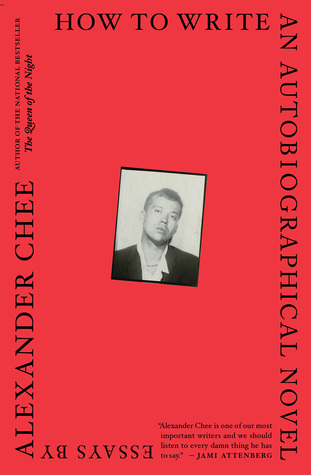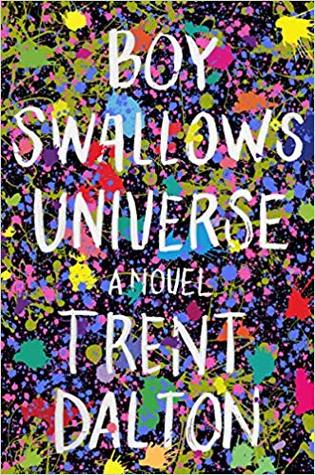
When her entrepreneurial friend, Carol, asked her to help with book selections for a prison book club she'd established, Ann Walmsley was a bit apprehensive to say the least. A few years prior, Ann was mugged outside her home in London, England. The incident had left her very shaken. As it turns out, her friend was very persuasive, so she decided to give it a go with the idea that she could write a book about the book club. By attending the meetings and giving some of the inmates journals so she could get their perspectives of the book club and prison life, this is Ann's account of an eighteen-month journey where she would leap outside of her comfort zone, tucking away her paranoia along with her preconceived notions of what to expect from the heavily tattooed inmates, as she visited the Collins Bay medium-security prison in Kingston, Ontario, on a monthly basis. She gathered more courage than she thought she had and entered a world she never could have previously imagined she'd end up in...
It's always interesting to recognize landmarks from your everyday life as backdrops in books. One of my favourite thrift shops is located directly across the street from the Collins Bay Institution. If you were passing by and didn't know that it was a prison, it looks like a beautiful limestone castle with a distinctive red roof, often with flocks of Canada Geese wandering freely on the outside grounds. I have always conjured an image of what it's like on the other side of those tall stone razor-topped walls, always carried a "what if" scenario of what I'd hypothetically do if I were to see an escaped inmate running across the street into the parking lot as I'm unloading my bags of thrifted treasures. (I don't know, scream? I've always just hoped the situation stayed hypothetical...)
But after reading so much about the group of inmates who convened at the Collins Bay Book Club, I gained a whole other perspective. First of all, I didn't just admire Ann Walmsley for being brave enough to actually enter a prison and meet with inmates after what happened to her in England, but I equally admire her for her seemingly bold book selections. She often chose books with protagonists who were prisoners themselves, or who had endured abuse or been involved in cover-ups. She chose books that could potentially be considered triggering, but for the very reason that most of the men could relate to these types of situations themselves, it made for such interesting discussions. Through reading about these men, it's evident that we're not so very different as people. They may have found themselves on a different path in life, but apart from that, we can all learn from each other and we can all gain deep insights and emotion from the books we choose to read. The fact that the men were also brave enough to join a book club in the first place gave me a different sense of admiration for them.
Ann and Carol would travel from their luxurious homes in Toronto to Kingston every month to facilitate the prison book club. They were also involved in a women's book club in Toronto where their counterparts were also well-to-do ladies. The two book clubs were complete opposites of each other: the Toronto ladies would have wine and cheese and fancy desserts in a calm, well-appointed condo while the men's prison book club took place in an often stuffy room off the chaplain's office. X-rayed cookies were served from clear packages. (The free cookies were the only thing some of the less literary-minded inmates showed up for.)
At one point, Ann's women's book club and the men's prison book club read three of the same books simultaneously. They each provided written insights that the other club would read. Carol remarked at one point that "the women's book club gathering was often more emotional than the men's." Maybe so, but the men - perhaps due to the sheer amount of time they had to dedicate solely to reading - often provided certain points of view that never crossed the women's minds. Ann also provided some of the more long-standing members with journals for them to record their observations about the books and prison life. These gave us a better understanding of what they were going through on a daily basis, how they viewed their futures and how the books they were reading helped them process their ideas.
After a few months, Ann and Carol also ended up traveling to the Beaver Creek Institution, a minimum-security prison where Carol had set up yet another book club. (Ann traveled to this prison in order to follow two of the book club members who had been transfered from Collins Bay.) In fact, by the end of the book, we learn that Carol's passion and ambition propels her to operate a book club in every single federal prison in Ontario. She further continued (and likely continues) to open more book clubs in prisons all across Canada, as well as sharing her expertise to help prisons outside Canada who also want to establish their own book clubs. As noted near the end of the book "research continues to point to interesting links between reading literary fiction and the growth of empathy" making her herculean efforts well worthwhile especially for a group who is often left at the fringes of society.
I really enjoyed reading The Prison Book Club, as it reminded me a lot of one of my favourite books about books, The End of Your Life Book Club by Will Schwalbe. Both are great books for true book lovers, for readers who want to discover even more great books and who love hearing other readers' different insights and perspectives. However, one very important thing that you need to be aware of if you plan on reading The Prison Book Club is that (perhaps obviously, since it is a book about a book club, after all...) the books are discussed in-depth, meaning there are spoilers throughout. Deaths, plot twists, and endings are all revealed! But, having already read a few of the books that were discussed, it was interesting to hear what others thought of the books. Some of the discussions reminded me of portions of books that I'd forgotten about or how they made me feel when I read them myself. And, of course, I now have a huge list of more great books to go and check out.
I recommend, like Ann, you go in with an open mind before you enter behind the prison gates of Collins Bay. Sometimes what intimidates us the most doesn't turn out to be quite as scary as we first thought. And this book is proof that books can really bring people together and unite us while opening our minds to worlds we could never ourselves imagine.
Judge the cover: 3/5





